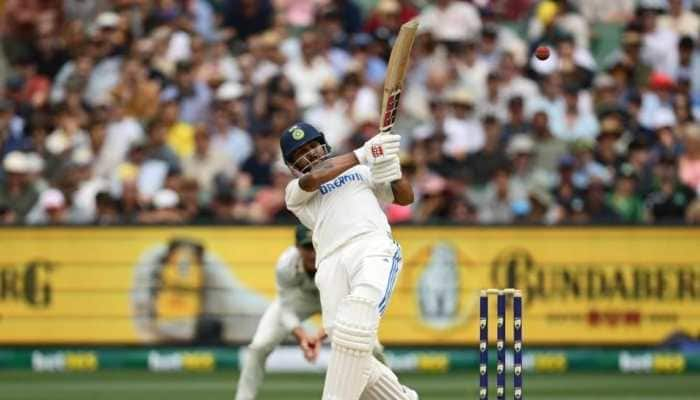Fertility Health Checkup: Reproductive Health Tests Men And Women Must Get Before Planning A Pregnancy
Reproductive health problems can steal a couple's peace of mind and fertility treatment is time bound and couples should not delay the treatment. Here is a list of health tests that every man and woman must get for optimal reproductive health.
Trending Photos
) Reproductive Health Tests Men And Women Must Get Before Planning A Pregnancy/ Image source: Pexels
Reproductive Health Tests Men And Women Must Get Before Planning A Pregnancy/ Image source: Pexels If you have been trying actively to get pregnant, by having unprotected intercourse regularly, for more than one year and failed to do so you should consider fertility testing. Women above 35yrs or older should consider fertility testing after six months of trying to get pregnant.
In an exclusive interview with Zee News Digital, Dr Rashmi Sharma Director, HOD IVF Dept- Origyn IVF Fertility and Chief Gynaecologist shares the fertility tests for every couple planning to get pregnant.
According to the American Society for Reproductive Medicine, infertility affects men and women equally, so it is necessary to test both partners.
Dr Reema says, "The first step for fertility health evaluation is finding a fertility doctor and getting the routine fertility tests."
List of Fertility Tests For Men and Women
Once you visit your doctor, they will ask you following tests to evaluate both partners:
1. Medical history
Medical histories, including any chronic illnesses or surgeries.
- History of use of any long-term medication, caffeine, alcohol, cigarettes, and drugs. · If there is any risk of exposure to chemicals, toxins, or radiation in the home or at work.
- Your sexual habits, including how often you have sex, any history of sexual problems or sexually transmitted diseases.
- Your doctor will also want to know about the detailed gynecologic history of the partner
- History of previous pregnancies if there were any?
- About the frequency and regularity of your periods over the last year · About any changes in blood flow or the appearance of large blood clots
- History of what methods of birth control you've used
- Whether you've previously seen a doctor for fertility issues and what treatments you received;
Carry all fertility-related medical documents, X-rays, and sonograms with you if you have previously seen a doctor regarding fertility issues.
2. Blood test
The next step will be to get blood tests done to evaluate the basic hormonal profile.
Some blood tests should be done at a specific time during a woman’s menstrual cycle. Follicle-stimulating hormone (FSH) and LH( luteinising hormones) and estradiol levels are done on cycle day two or three (three days after a woman’s period starts).
Other possible blood tests for hormones include anti-Müllerian hormone (AMH) to check for ovarian reserve. AMH can be done anytime during a woman’s menstrual cycle. Thyroid and prolactin levels are also essential hormones and should be checked. The male hormonal profile is only done if the semen analysis comes out to be abnormal.
3. Pelvic examination
An initial pelvic examination is done to rule out any active vaginal infection that may contribute to infertility
4. Pelvic Ultrasound
An ultrasound is a non-invasive method of examining a woman's reproductive system that aids in the identification of anatomical issues such as uterine fibroids and ovarian cysts. Antral follicle count which is important to comment on a woman's ovarian reserve is also evaluated during ultrasound examination
5. Semen analysis
After roughly 3-5 days of abstinence, your doctor will advise the male partner to undergo an intensive semen analysis to determine the quantity, shape, and motility of the sperm.
Other Tests and Procedures for Female Patients
Hysterosalpinogram: The HSG is done to help diagnose fallopian tube blockages and defects of the uterus.
Hysteroscopy: If a problem is found in the HSG, your doctor might order a hysteroscopy. In this procedure, a thin telescope-like instrument is inserted through the cervix into the uterus. It helps in the visualization of the uterus.
Laparoscopy: Your doctor can decide to perform a laparoscopy after the aforementioned tests have been completed. In this, the abdomen is examined with a laparoscope to check for endometriosis, scarring, and other problems. Compared to an HSG, this treatment is a little more invasive and necessitates general anaesthetic.
Additional Fertility Tests for Men
Genetic testing: Genetic testing may be done to determine whether there's a genetic defect causing infertility. Y chromosome deletion or karyotyping may be advised
Testicular biopsy: A testicular biopsy may be done in certain cases to find anomalies causing infertility or for procuring sperm for assisted reproductive methods like IVF.
Imaging: Image tests such as a brain MRI, transrectal or scrotal ultrasound, or a test of the vas deferens (vasography) may be carried out under specific circumstances.
Not all couples undergo all these tests. Your doctor will guide you through those that are most appropriate for your situation. After the testing is done, about 70% of couples will have some idea why they're having trouble getting pregnant.
In some cases even after all the tests the cause for infertility is not evident and such cases are known as unexplained infertility. This account for almost 25-30% of all infertility cases. Couples diagnosed with unexplained infertility also require and benefit from fertility treatments.
Stay informed on all the latest news, real-time breaking news updates, and follow all the important headlines in india news and world News on Zee News.
Live Tv







)
)
)
)
)
)
)
)
)
)
